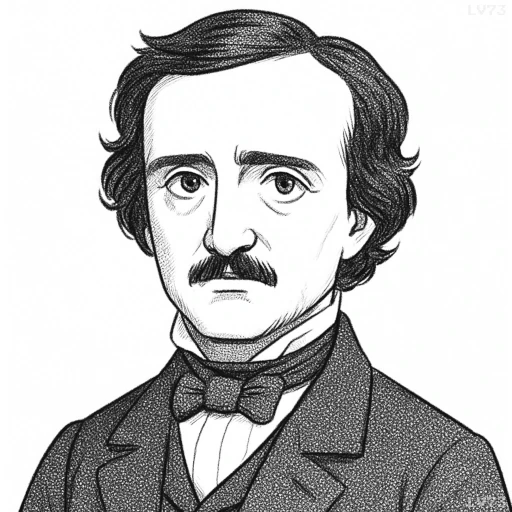“I am above the weakness of seeking to establish a sequence of cause and effect, between the disaster and the atrocity.”

- January 19, 1809 – October 7, 1849
- American
- Novelist, poet, critic
table of contents
Quote
“I am above the weakness of seeking to establish a sequence of cause and effect, between the disaster and the atrocity.”
Explanation
In this quote, Edgar Allan Poe expresses a sense of detachment from the need to find rational explanations or logical connections between events, particularly when it comes to disasters and atrocities. The phrase “I am above the weakness” suggests that Poe sees this pursuit of cause and effect as something beneath him, perhaps unnecessary or even futile in certain situations. This reflects his understanding that some occurrences—especially the most tragic or horrific ones—may not always have clear or understandable reasons behind them. It suggests a world where chaos and suffering cannot always be neatly explained or rationalized.
Poe was deeply concerned with the irrational and the unexplainable, often exploring themes of fate, madness, and the mystery of human experience. His works frequently deal with the absurdity of trying to understand or control the chaos of life. The disasters and atrocities he references might symbolize the unpredictable and tragic events that occur in life, where efforts to understand them logically often fail to bring relief or clarity. This view aligns with the Romantic movement, which valued emotion, instinct, and the irrational over the structured logic of the Enlightenment.
In today’s world, this quote can be seen as a comment on our often futile attempts to impose rationality onto life’s most chaotic and devastating events, such as natural disasters, social injustices, or personal tragedies. In the modern age of data-driven decision-making and causal analysis, the idea that not everything needs to be understood or explained challenges us to embrace the uncertainty of life. Sometimes, as Poe suggests, seeking explanations for every event—especially the most tragic ones—can be a weakness, as it fails to acknowledge the complexity of existence and the limitations of human understanding.
Would you like to share your impressions or related stories about this quote in the comments section?

